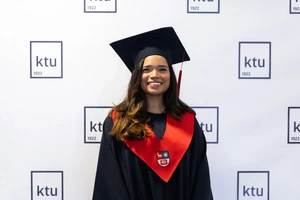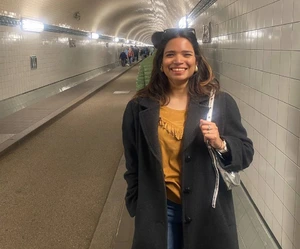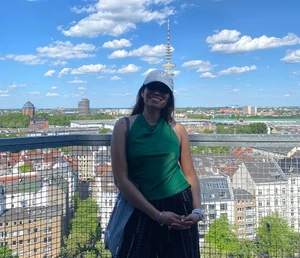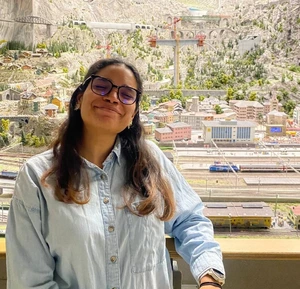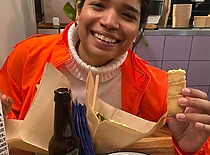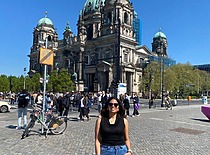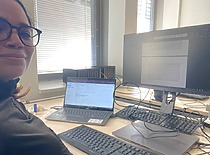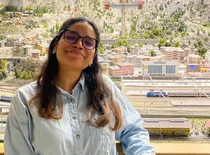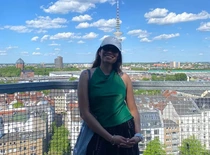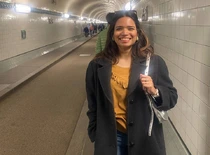A personal challenge and professional opportunity
Maria Rosa’s interest in AI within healthcare developed gradually, but her participation in the ECIU University challenge on AI in medicine, coordinated by TUHH, marked a decisive turning point.
“I had been aware of the growing impact of AI in many fields, particularly medicine. The ECIU challenge encouraged me to look deeper into how AI could be applied to medical contexts, including diagnostics and patient treatment,” she explains, “on the other hand, I fully understood the importance of informatics and AI, and how I did not yet have strong skills in those areas. So, in many ways, this was a personal challenge – I wanted to push myself.”
During her time at the Institute of Medical Technology and Intelligent Systems at TUHH, Maria Rosa worked alongside an international team under the supervision of an experienced researcher.
One of the most memorable moments occurred when her code functioned correctly for the first time. “The first time my code finally ran successfully, and the simulation made sense – it was such a rewarding feeling to see the results of my effort materialise like that.”
Equally striking was the opportunity to engage directly with advanced technologies, including systems used for laparoscopy and autonomous medication delivery – technologies she had previously only seen on television or in science fiction, making the experience of interacting with them in real life even more surreal.
Applying AI in medical contexts
While at TUHH, Maria Rosa contributed to a project that involved designing a neural network capable of predicting the radiation field of a radiotracer targeting malignant tissues. The task required a solid understanding of both programming and clinical applications – areas in which she gained significant experience during her internship.
“The development of the neural network for predicting the radiation field of the radiotracer attached to the malignant tissue was complicated for me,” she admits, “as programming has never been my strongest skill. However, with consistent support and guidance from my supervisor, I was able to deliver a working program that met our goal and laid the foundation for further development of the proposed approach.”


